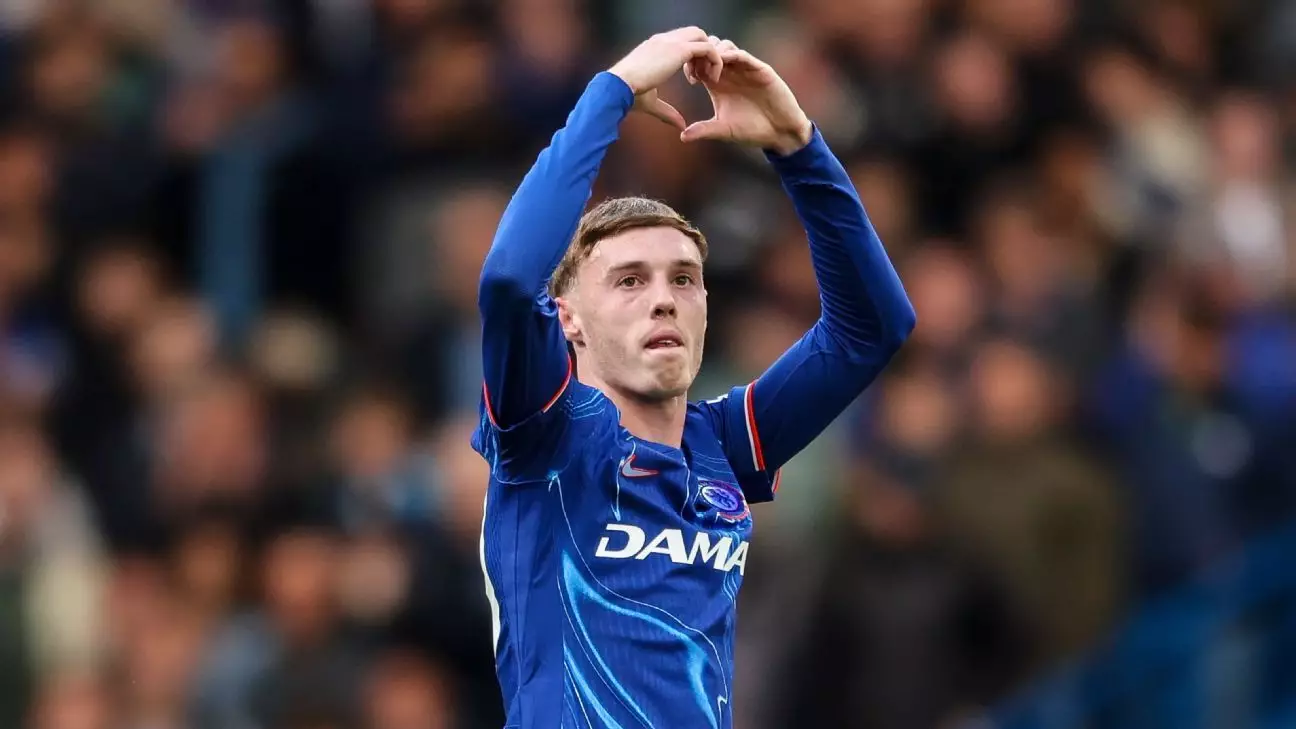In a thrilling encounter at Stamford Bridge, Chelsea’s Cole Palmer demonstrated remarkable resilience as he overcame a significant scoring drought, contributing to a 3-1 victory over Liverpool. This much-anticipated match was not merely a clash between two prominent clubs but a defining moment for Palmer, who found himself under the relentless scrutiny of social media. After scoring his first goal in 13 games, he effectively challenged the negativity he faced online, illustrating the mental challenges athletes often encounter in high-stakes environments.
Palmer’s journey has been a tale of contrasts. Earlier in his Chelsea career, following a hefty £42.5 million transfer from Manchester City, he enjoyed a promising start, netting an impressive 36 goals and providing 17 assists in his initial 54 appearances. However, the past few months brought an unexpected cold streak, leading many to question his capabilities. Reflecting on this turbulent patch, Palmer expressed frustration with the “social media idiots” who took joy in his struggles, highlighting a crucial aspect of modern sports—where a player’s performance is dissected in real-time by fans and critics alike.
Team Spirit and Personal Accountability
What stands out in Palmer’s post-match reflections is not just his personal triumph but the collective spirit of the team. He emphasized the importance of team performance over individual accolades, noting, “We played very well as a team. They’re champions for a reason.” This perspective is vital, as it places success within the broader context of teamwork rather than individual statistics alone. For many athletes, moments of personal hardship become learning experiences, often fostering greater dedication to their craft.
Palmer’s acknowledgment of his three-month goal drought serves as a stark reminder of how quickly narratives can shift in sports. One moment can make or break a player’s reputation, leading to unrealistic expectations from fans and media alike. Yet Palmer’s response—one of determination and readiness to improve—signals a deep-seated mental strength. He insists that despite the pressures, he remains focused on contributing positively to the team’s success, encapsulating the notion that personal struggles can lead to a renewed sense of purpose.
Liverpool’s Resilience and Tactical Adjustments
On the other side of the pitch, Liverpool’s manager Arne Slot faced scrutiny after making significant changes to the lineup following their title victory. Despite the defeat, Slot resisted the narrative of a team ‘dropping standards,’ highlighting their ability to regroup and create scoring opportunities even after falling behind 2-0. His defense of the squad’s performance sheds light on the small margins that can define matches at the elite level; a successful counter or missed opportunity can easily shift the course of an encounter.
The exchange between Chelsea and Liverpool serves as a microcosm of the broader Premier League landscape, where every match presents an opportunity for redemption or downfall. It also reflects the resilient spirit that both clubs embody, making their encounters not just about winning but about continuous growth and adaptation. As Cole Palmer steps forward from the shadows of his own doubts, he not only finds personal triumph but also represents the collective determination that defines Chelsea’s ambitions this season. Such narratives are what make football not only a sport but a compelling story of human perseverance.

Leave a Reply